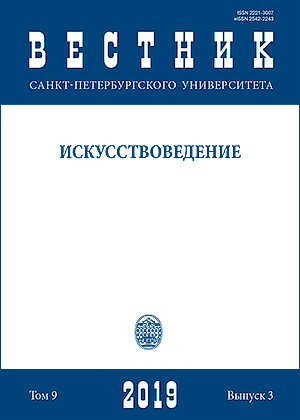Reception of the Notre Dame School’s Conductus in the early French Ars Nova: For the 700th Anniversary of the Manuscript F-Pn fr. 146
DOI:
https://doi.org/10.21638/spbu15.2019.302Abstract
An extended edition of the poem “Roman de Fauvel” by Gervais du Bus, made by Chaillou de Pesstain and completed in 1317–1318, includes 169 musical numbers, of which 30 are based on the Notre Dame school’s conductus. This is the most extensive reception of the conductus in the notated sources of the beginning of the 14th century. The article reveals the reasons for the appeal of “Roman de Fauvel”, a satirical allegory of contemporary political and church life in France, to the conductus. Most of the pieces are monophonic and attributed to the “prosa” genre by the compilers of the manuscript. On the example of two proses, the author of the article traces the transformations that took place in relation to the primary conductus, preserved in earlier manuscripts. Monophonic pieces, in which the conductus is used, fit into the general development trends of the conductus genre at the end of the 13th–beginning of the 14th century. Five compositions are polyphonic; they are designated as “motez” by the authors of the manuscript. Almost all of them reveal the influence of the conductus genre: at the level of a single party, and in a number of the motets — at the level of the composition. The sign of belonging to the “Roman de Fauvel” becomes the “fauvelization” of many conductus, which consists in adding (or re-writing) poetic lines linking the content of Notre Dame school’s conductus texts to the central figure of the novel, Fouvel, and thereby updating them.
Keywords:
manuscript F‑Pn fr. 146, Roman de Fauvel, Gervais du Bus, Chaillou de Pesstain, conductus, motet, prosa, rhythmic modes, ars nova, the cantus firmus elaboration
Downloads
References
Источники
References
Sources
Downloads
Published
How to Cite
Issue
Section
License
Articles of "Vestnik of Saint Petersburg University. Arts" are open access distributed under the terms of the License Agreement with Saint Petersburg State University, which permits to the authors unrestricted distribution and self-archiving free of charge.






